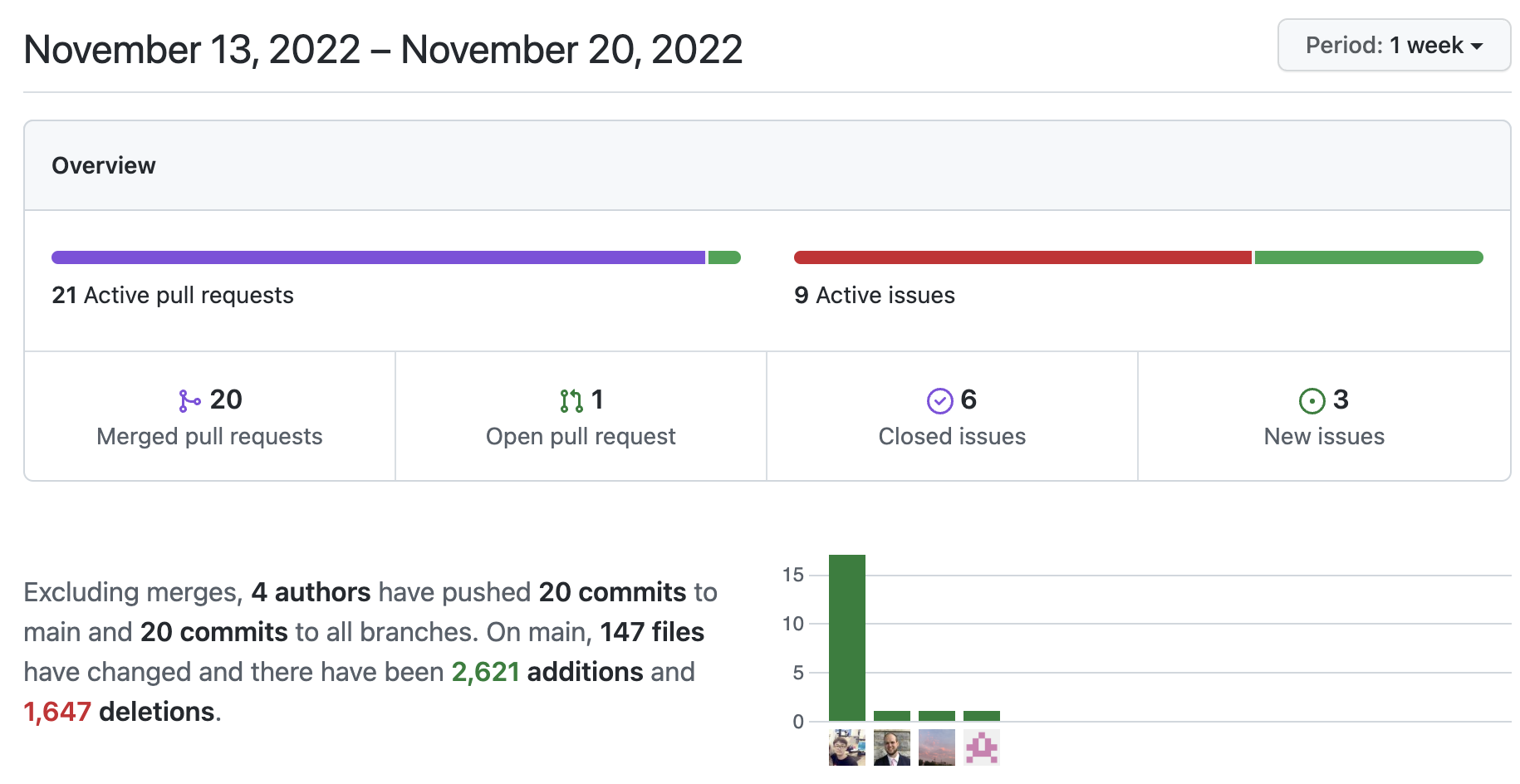This is the second status update for stc (opens in a new tab), the new TypeScript type checker written in Rust.
TL;DR;
Stats:
{
required_error: 4463 => 4350,
matched_error: 5421 => 5534,
extra_error: 999 => 1051,
panic: 89 => 77,
}This is the diff for the last commit on November, 13 (opens in a new tab) and the last commit on November, 20 (opens in a new tab)
extra_error means a false positive. In other words, it's the number of incorrect errors stc emits while it should not.
Reducing it is the primary focus, but it was increased because I fixed lots of panics.
If the analyzer panics while analyzing a test case, the stat becomes
Stats {
required_error: required_error,
matched_error: 0,
extra_error: 0,
panic: 1
}When the panic is fixed, the analyzer may emit errors, and some of them are wrong.
Contributions

There were some contributors this week.
Noticeable changes
- #315 (opens in a new tab): Groundwork for RAII-based context for errors.
Debugging stc (opens in a new tab) is a very difficult task. To help debugging, stc (opens in a new tab) emits some context information for each errors.
It looks like the below.
x context:
| lhs = number;
| rhs = true;
| context: `fail!()` called from assign/mod.rs:1840
| LHS (final): number;
| RHS (final): true;
| WrongArgType {
| span: Span {
| lo: BytePos(
| 941,
| ),
| hi: BytePos(
| 945,
| ),
| ctxt: #0,
| },
| inner: AssignFailed {
| span: Span {
| lo: BytePos(
| 941,
| ),
| hi: BytePos(
| 945,
| ),
| ctxt: #0,
| },
| cause: [],
| },
| }
,-[$DIR/tests/conformance/types/union/unionTypeConstructSignatures.ts:15:1]
15 | new unionOfDifferentReturnType1(true); // error in type of parameter
: ^^^^
`----Previously, these contexts are added by calling .context method on the Result or the Error type, like
return Err(ErrorKind::AssignFailed {
span,
left: box to.clone(),
right: box rhs.clone(),
right_ident: opts.right_ident_span,
cause: vec![],
}
.context({
format!(
"`fail!()` called from assign/mod.rs:{}\nLHS (final): {}\nRHS (final): {}",
line!(),
dump_type_as_string(&self.cm, to),
dump_type_as_string(&self.cm, rhs)
)
}))But this is problematic because it does not attach additional context if I simply add ? operator to an expression.
I found a better solution. Once migration is done, it will look like
let _ctx = ctx!(format!("convert_type_to_type_lit: {:?}", ty));
let ty = self.normalize(Some(span), ty, NormalizeTypeOpts { ..Default::default() })?;
call_other()?;instead of
let ty = self.normalize(Some(span), ty, NormalizeTypeOpts { ..Default::default() })
.with_context(|| format!("convert_type_to_type_lit: {:?}", ty));
call_other().with_context(|| format!("convert_type_to_type_lit: {:?}", ty))?;which is too verbose.
Additionally, this allows tracking errors directly reported. In previous version there were no concept of stack. So there was no way to add full context to errors generated from the current code path. The new version will allow faster debugging.